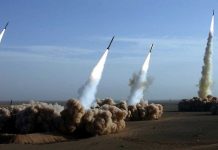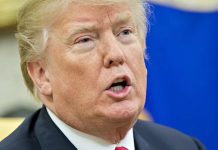NEW YORK TIMES – New Zealand has blocked Huawei from supplying technology for a next-generation mobile data network in the country, joining the United States and other developed countries that see the Chinese telecommunications equipment maker as a security threat.
New Zealand’s intelligence agency rejected a proposal from Spark, one of New Zealand’s biggest telecom carriers, to use Huawei gear in its planned fifth-generation, or 5G, mobile network. Huawei’s involvement would raise “significant national security risks,” Spark said Wednesday, citing a government statement.
The move follows a similar decision by Australia in August to ban Huawei from taking part in its 5G infrastructure rollout, as well as mounting warnings from the United States that the company’s ties to the Chinese government make its products vulnerable to snooping or interference — an accusation Huawei strongly denies.
“The U.S. advocates for secure telecoms networks and supply chains that are free from suppliers subject to foreign government control or undue influence,” the United States Embassy in Australia said in a statement on Wednesday.
It added, “we routinely urge allies and friends to consider such risks and exercise similar vigilance in ensuring the security of their own telecoms networks and supply chains.”
Huawei said it was looking into the matter. “As the GCSB has noted, this is an ongoing process,” the company said in a statement, referring to the Government Communications Security Bureau of New Zealand. “We will actively address any concerns and work together to find a way forward.”
Huawei says that it is a private company and is not controlled by Beijing.
New Zealand’s rejection further solidifies a wall that is increasingly dividing the world into two. There are places that will accept Chinese technology in sensitive areas like telecommunications, and places that won’t. The United States government has long deemed Huawei and another Chinese hardware maker, ZTE, to be potential menaces to security and privacy. And American lawmakers have voiced concerns about the two companies’ business in other wealthy countries such as South Korea.
Elsewhere, especially in the developing world, Huawei’s affordable equipment looks too good to turn down.
On Tuesday, Papua New Guinea said that it would uphold an agreement with Huawei to build domestic internet cables, turning down a joint counteroffer from Australia, the United States and Japan.
“We have an existing agreement,” William Duma, the state investment minister for the Pacific island nation, told reporters. Huawei has already completed 60 percent of the US$200 million project, which is financed by the Export-Import Bank of China. Duma said that made the 11th-hour effort from the Western powers “a bit patronising.”
The competing offer comes as concerns have grown in Australia and allied nations about China’s investments in the resource-rich island countries of the Pacific Ocean. Earlier this year, Australia agreed to fund an undersea communications cable linking Sydney with the Solomon Islands, following a similar deal with Papua New Guinea.
Australian officials were worried that if the project went to Huawei, as the Solomon Islands had agreed in 2016, the Chinese company might gain access to Australia’s internet infrastructure. In 2012, Huawei was banned out of security concerns from bidding on projects for Australia’s national broadband network. The company has, however, sold equipment to Australian cellular operators.
Like Australia, New Zealand has been grappling with a series of scandals related to Chinese influence. Last month, a New Zealand lawmaker was accused of trying to hide a campaign contribution from a businessman with ties to the Chinese Communist Party. Another lawmaker was revealed last year to have been a member of the Communist Party in China who taught English to spies there.
More recently, agents of Beijing were blamed for a burglary targeting a New Zealand professor who studies the Chinese Communist Party’s influence in Western countries.
Despite those concerns, New Zealand has been relatively tactful in dealing with China, experts say. As a result, its two-way trade with China has more than tripled in the past decade, according to government statistics, and the bilateral relationship has become one of New Zealand’s most important.
Last year, New Zealand became the first advanced economy to join China’s Belt and Road Initiative, an ambitious infrastructure program stretching through much of Asia that is widely seen as an effort to extend Beijing’s political influence.
Papua New Guinea is also a signatory to the Belt and Road Initiative, which has drawn it closer to China. That has not stopped officials there from raising questions about potential ties between Huawei and the Chinese government, according to a report on Tuesday by Danielle Cave, a senior analyst at the Australian Strategic Policy Institute.
But in a region in desperate need of infrastructure, officials may take funding where they can get it, said Duma, the Papua New Guinea minister.
Security concerns are “for the big boys to worry about,” he said.
The joint offer that Papua New Guinea rejected on Tuesday came too late, said Jonathan Pryke, director of the Pacific Islands programme at the Lowy Institute in Sydney. Still, he said, it was meant to show that the United States and its allies remain a viable alternative to China’s money and influence.
“We’d like to show that we’re still in this game,” Pryke said, referring to the position of the three allies. “We wanted to maintain our position as a partner of choice.”
Officials from Pacific island countries have also complained about the West’s paternalistic approach in providing aid packages. Still, the United States and its allies are trying to adapt.
This month, Australia, New Zealand, the United States and Japan said they would help Papua New Guinea significantly expand its electrical grid. Cave said in an interview that it was an “ambitious and very good example of listening and responding.”
This story appears on PACNEWS. Kaniva has a content sharing rearrangement with PACNEWS







